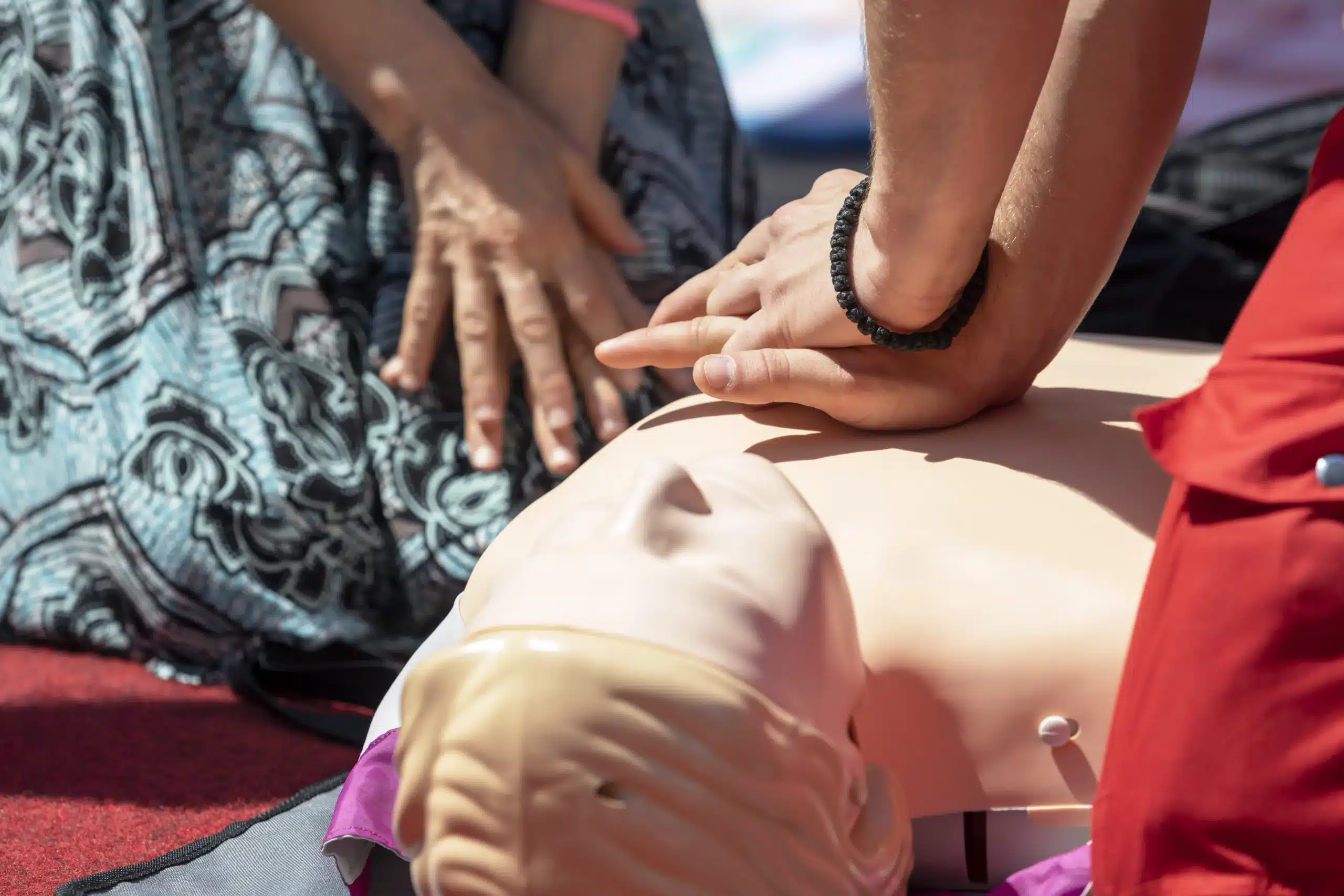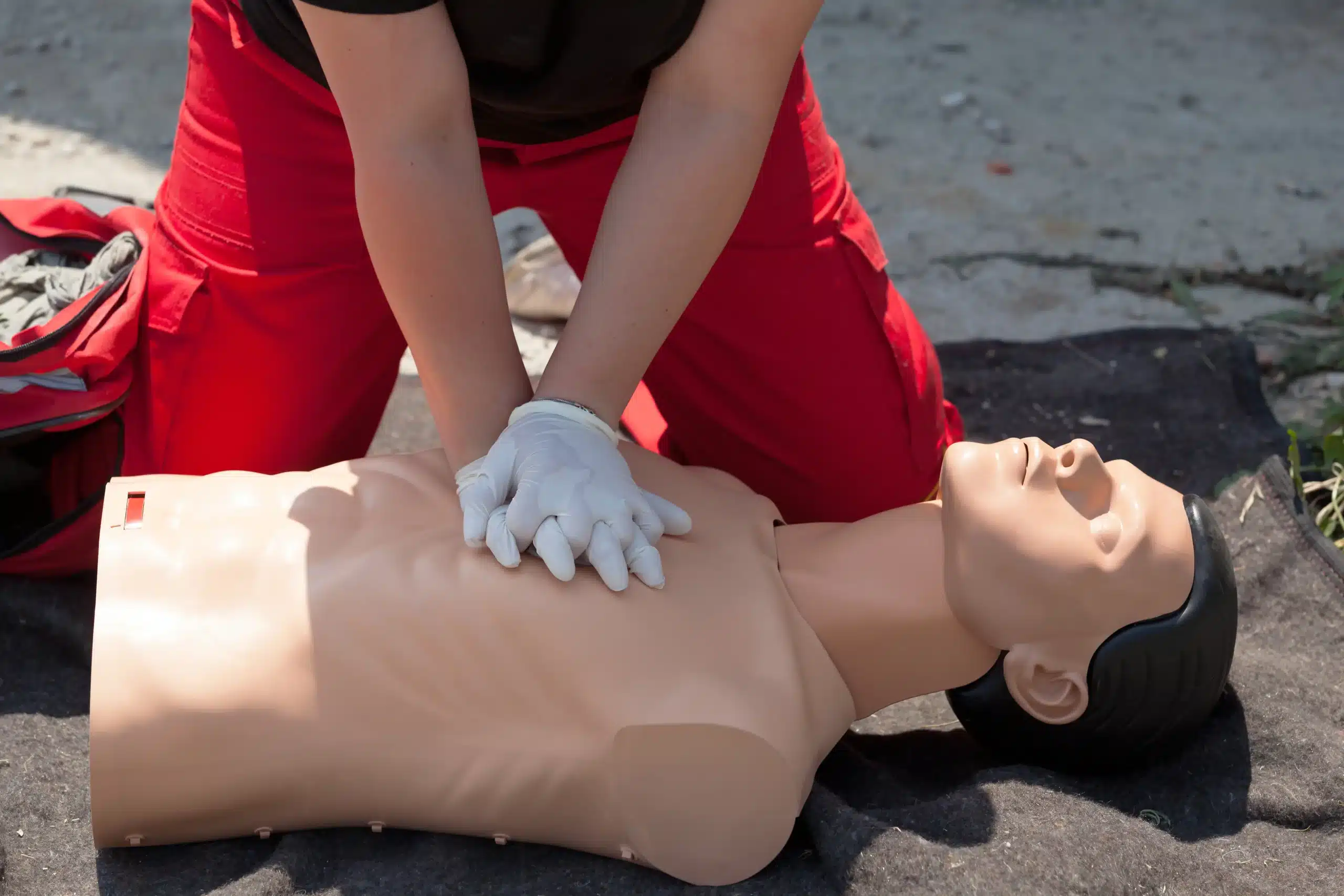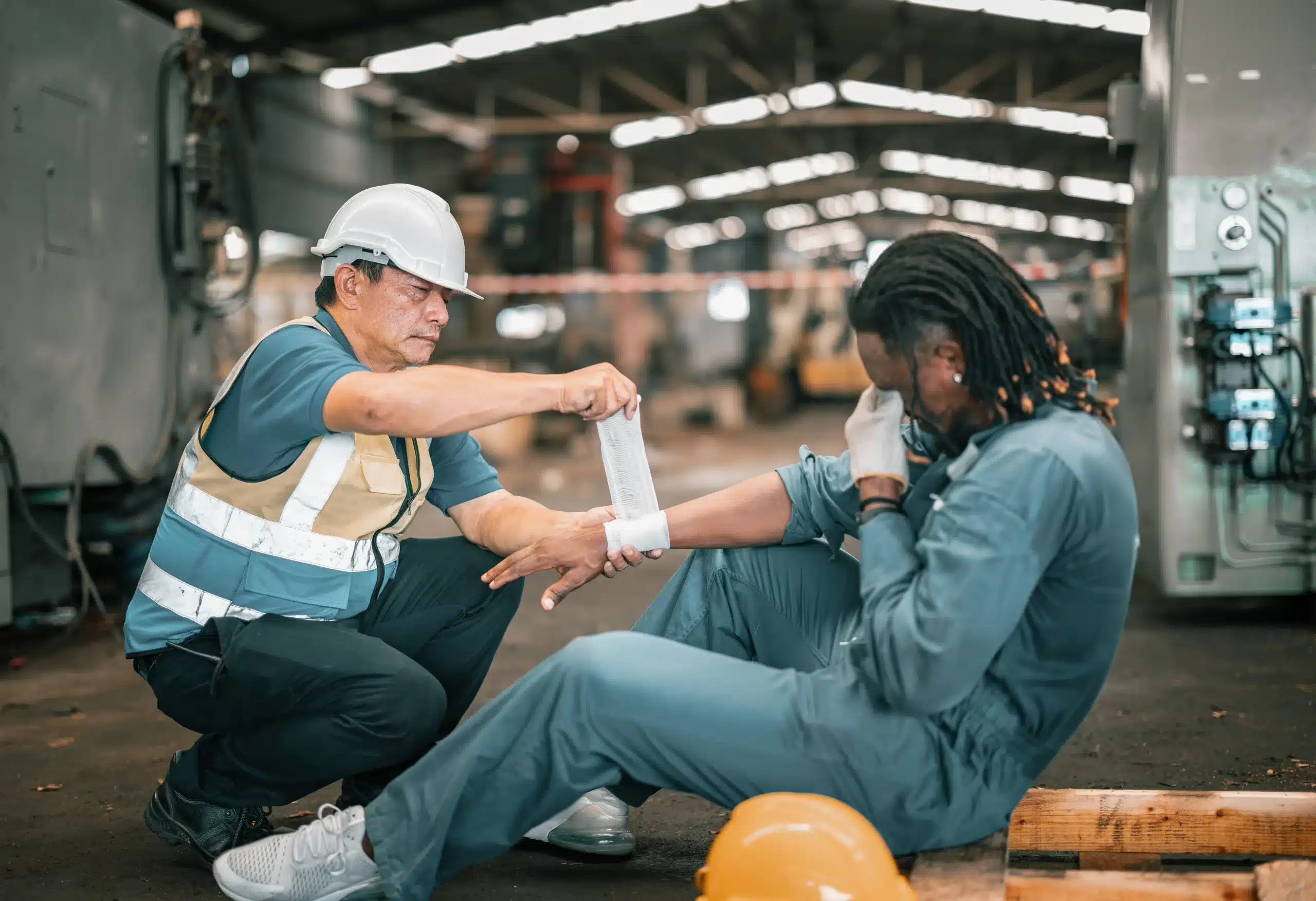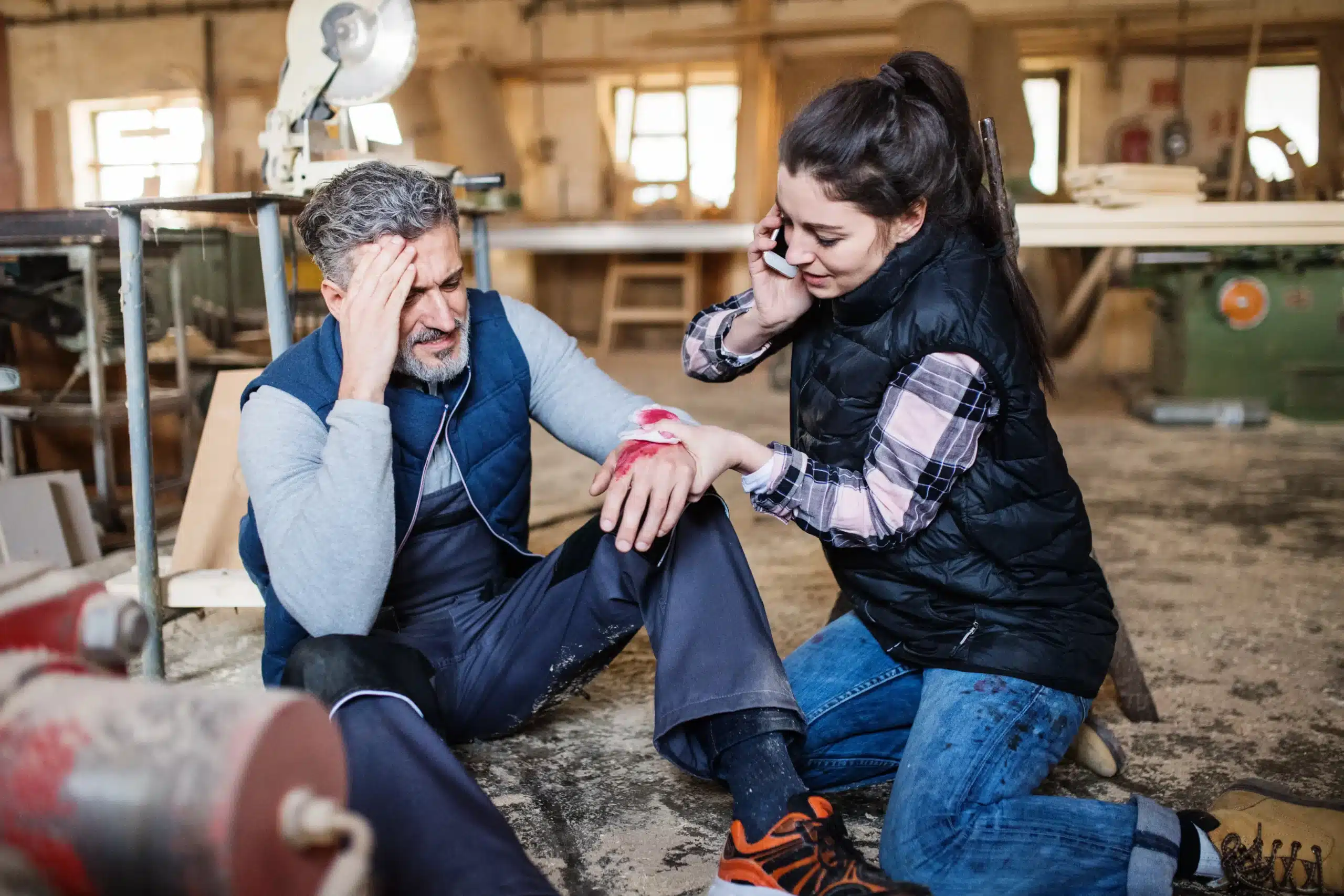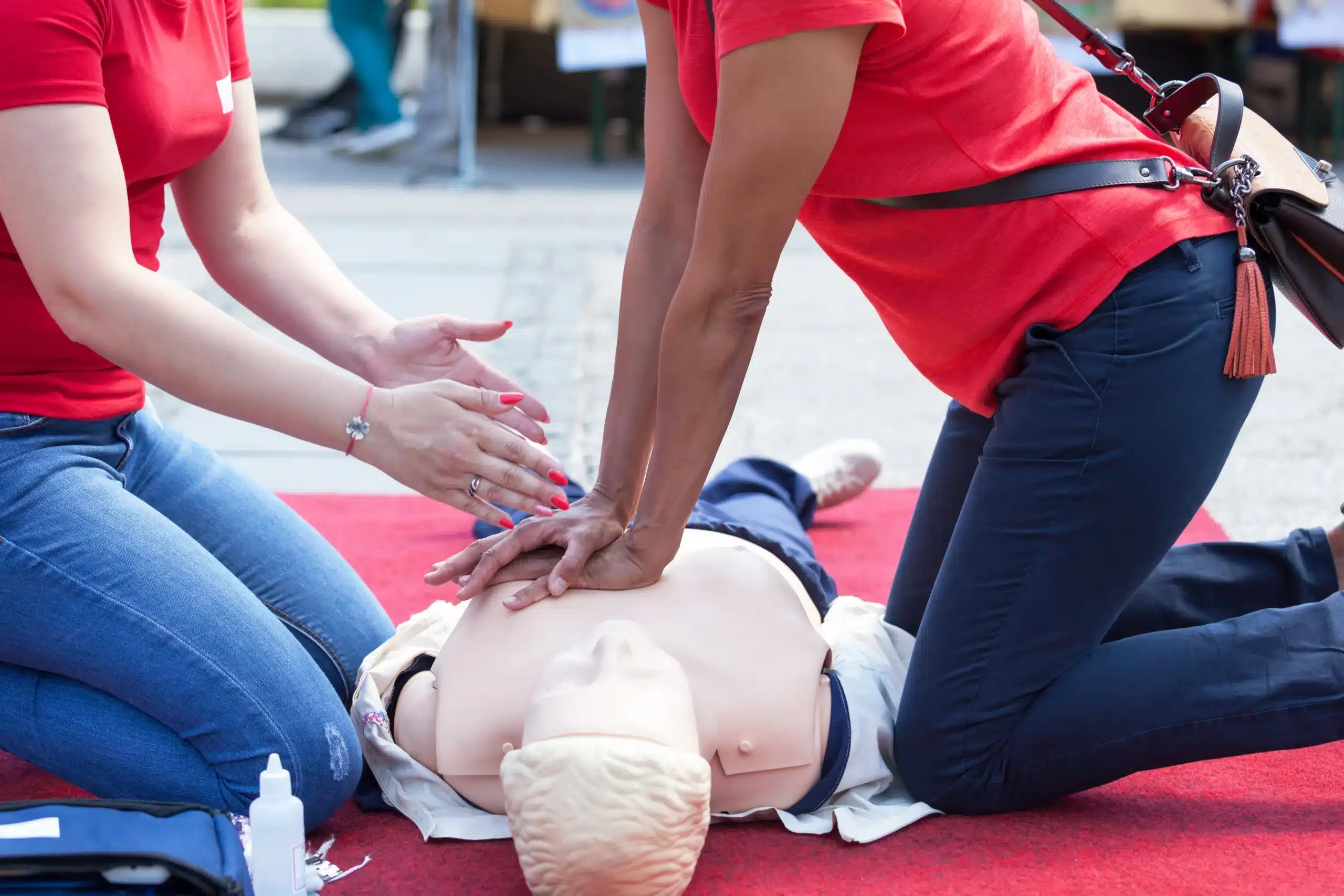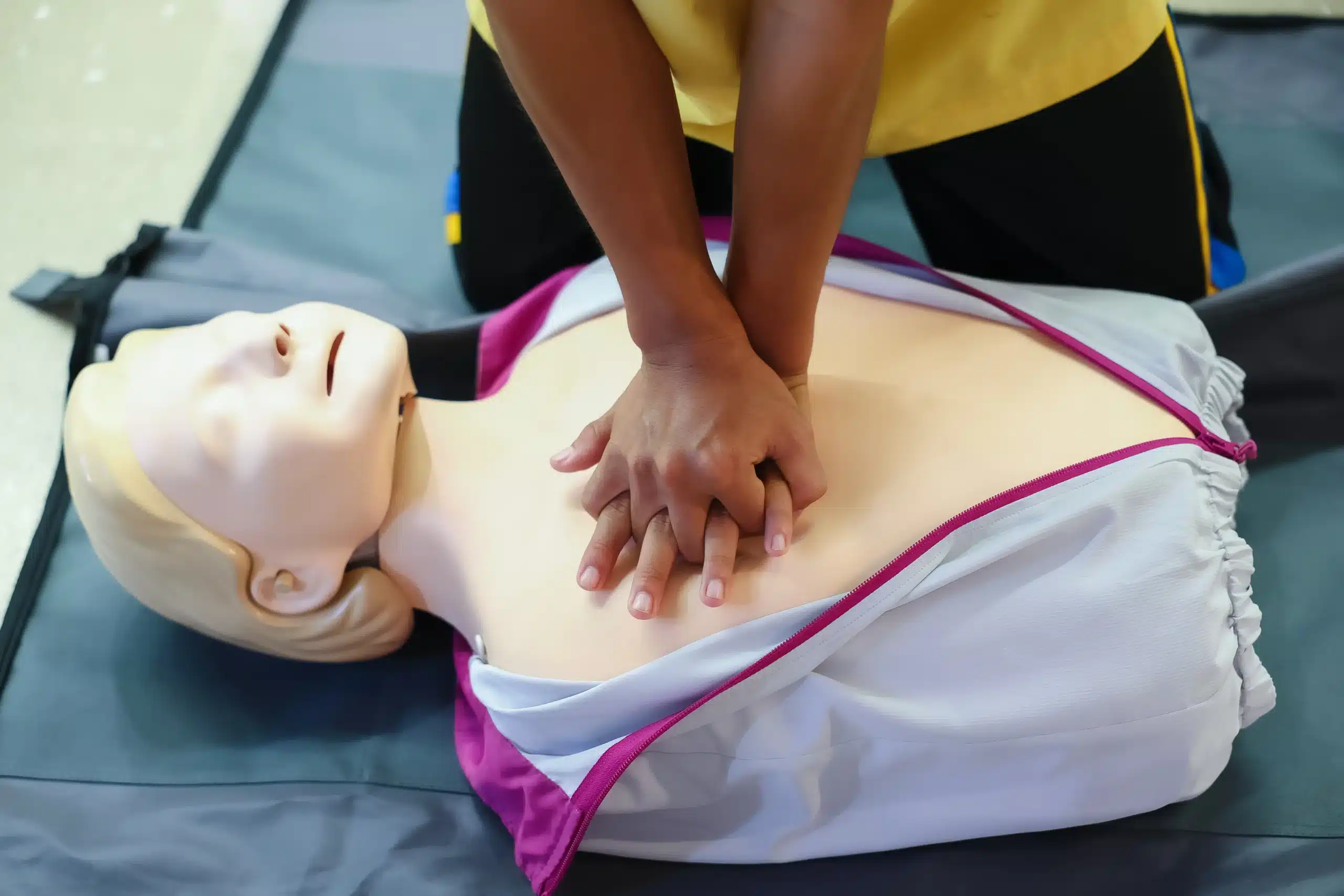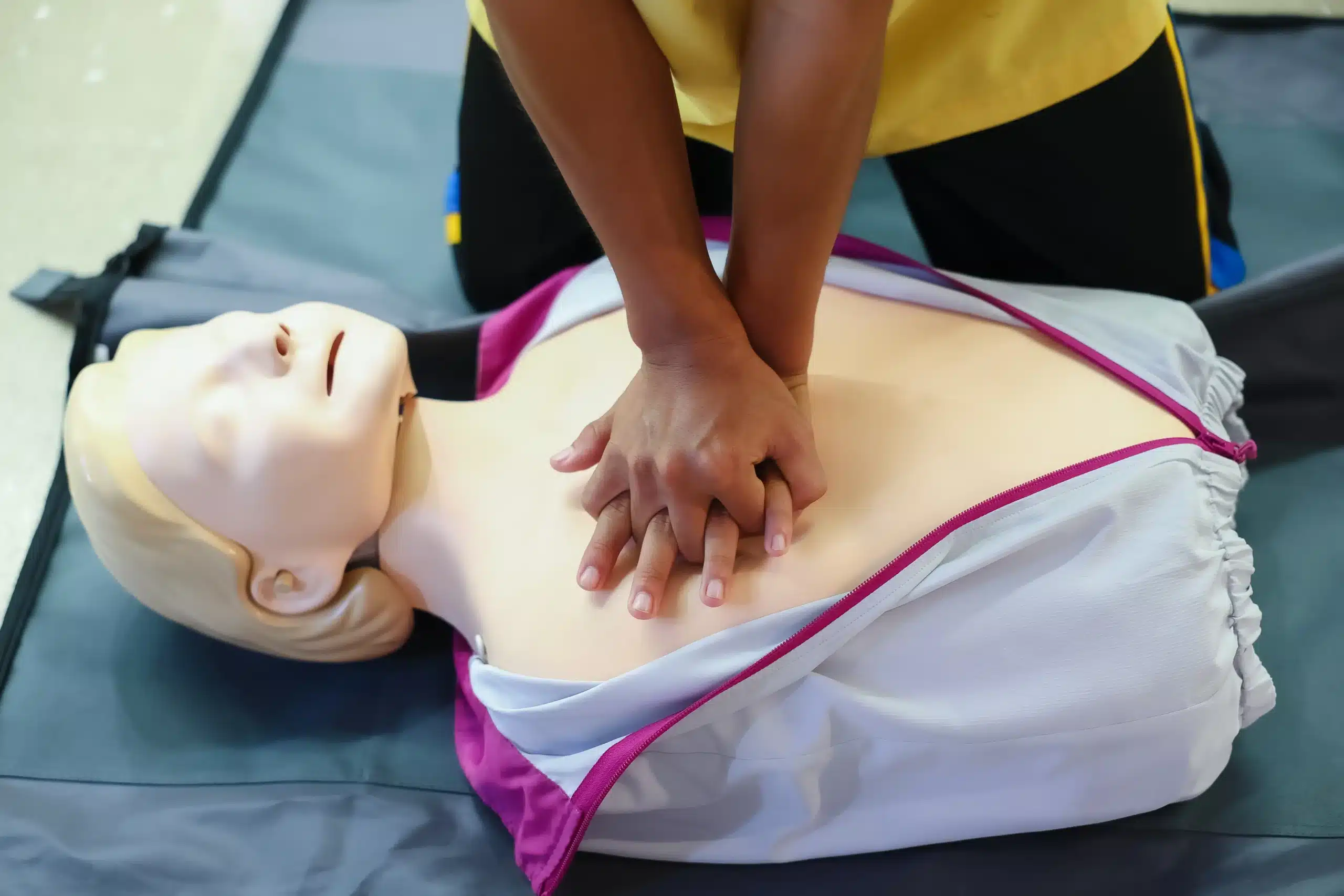Basic life support (BLS) certification is a critical skill for anyone in San Jose who wants to be prepared for medical emergencies. This article explores the ins and outs of BLS training, including what skills you’ll learn, the different course formats available, and how to choose the right course for your needs. We’ll also discuss the importance of BLS for healthcare professionals and public safety personnel, highlighting the benefits of certification and debunking common myths. Discover how Safety Training Seminars can help you gain the confidence and skills to respond effectively in life-threatening situations.
Key Takeaways
- BLS certification empowers you to save lives: From healthcare professionals to everyday individuals, BLS training provides the essential skills to respond effectively to medical emergencies, giving you the confidence to act quickly and decisively when it matters most.
- Choosing the right BLS course is easy: Consider your learning style, budget, and schedule when selecting a course. Look for reputable providers like Safety Training Seminars, offering flexible options and a low price guarantee to make quality training accessible.
- Maintain your BLS skills for long-term preparedness: BLS guidelines evolve, so renewing your certification every two years is vital for staying up-to-date on the latest life-saving techniques and maintaining your confidence in emergency situations.
What is BLS?
Basic Life Support (BLS) certification is vital for anyone in healthcare, emergency response, or anyone who wants to be prepared for emergencies. It’s a training program equipping you with the skills to respond to life-threatening situations. BLS certification focuses on providing immediate care to victims experiencing cardiac arrest, respiratory distress, or an obstructed airway. This training empowers you to act quickly and confidently while waiting for paramedics or EMTs. You’ll learn to recognize emergencies and provide essential support, potentially saving a life. For more information, CPR Select offers a helpful overview of
Core BLS Components
BLS certification covers essential life-saving techniques. The curriculum includes training on using an automated external defibrillator (AED), a portable device that analyzes heart rhythms and can deliver a shock to restore a normal heartbeat. You’ll also learn basic airway management to ensure proper breathing and techniques to help someone who is choking. These skills are crucial for maintaining oxygen flow and preventing complications during emergencies. Medtigo provides additional information on common misconceptions surrounding BLS.
Importance of BLS
Understanding BLS principles is critical for healthcare providers and patient safety. BLS training gives healthcare professionals the skills to manage critical situations, directly impacting patient outcomes. By providing prompt and appropriate care, they can stabilize patients and potentially prevent irreversible damage. This knowledge is essential for maintaining high standards of care. Smart Sim Registration discusses the importance of BLS for healthcare providers and clarifies some common misunderstandings. BLS training isn’t just for medical professionals; it’s valuable for anyone who wants to be prepared to help in a medical emergency.
Find BLS Training in San Jose
Finding the right BLS training in San Jose is easier than you think. Several excellent providers offer courses tailored to different needs and schedules. Here are a few options to explore:
Safety Training Seminars
Safety Training Seminars is a woman-owned American Heart Association Training Center offering high-quality BLS, ACLS, PALS, CPR, and First Aid courses. They understand the demands of busy schedules and offer convenient BLS courses in San Jose (Willow Glen) seven days a week. Their commitment to small class sizes ensures personalized attention and a better learning experience. Plus, their low price guarantee gives you confidence you’re getting the best value.
American Red Cross
The American Red Cross is another reputable organization providing BLS training in San Jose. They offer courses for individuals and organizations, including instructor training if you’re interested in teaching these lifesaving skills. The Red Cross offers a blend of in-person and online learning formats to fit various learning styles and schedules. You can easily find BLS certification and renewal courses in San Jose through their website.
Other Local Options
Beyond these well-known providers, you’ll find other local options for BLS training in San Jose. Many organizations offer classroom-based and blended learning (online/in-person) formats, providing schedule flexibility. Some courses can be completed in as little as 4.5 hours, ideal for busy professionals. CPR Training Center offers various BLS provider courses. You can also check with San Jose CPR Certification for additional local training options.
BLS Certification: Costs & Value
Getting BLS certified is an investment in your skills and ability to respond to emergencies. But how much does it cost, and what value does it bring? Let’s break down the typical BLS certification costs in San Jose and explore the benefits of training with Safety Training Seminars.
San Jose Price Range
Basic Life Support (BLS) certification courses teach high-quality CPR for adults, children, and infants. Course prices vary depending on the training center and location. In San Jose, expect to pay between $70 and $150 for a comprehensive BLS certification course. This range reflects differences in course materials, instructor experience, and the overall quality of the training program. Compare options and find a course that fits your budget and learning style.
Safety Training Seminars’ Pricing & Guarantee
Safety Training Seminars, a woman-owned AHA Training Center, offers competitive pricing on BLS certification courses in San Jose, Santa Clara, and Sunnyvale. Check their website for the latest pricing and to register for upcoming BLS courses in Willow Glen, San Jose. They also offer a satisfaction guarantee, ensuring you receive excellent training. This commitment to quality instruction and student satisfaction sets them apart. Learn more about their low price guarantee.
Group Discounts
If you’re training with a group, Safety Training Seminars offers a 5% discount for 2–5 people. Use code BLS5 when registering. This discount makes BLS certification more accessible for organizations, businesses, or groups of friends training together. It’s a smart way to share the cost and ensure everyone on your team has these lifesaving skills.
BLS Course Duration & Format
Choosing the right BLS course format depends on your learning style and schedule. Let’s break down the typical options: in-person, blended learning (online + in-person), and the overall time commitment involved.
In-Person Training
In-person BLS training provides a focused learning environment with direct interaction with instructors and other students. These classes offer hands-on practice and immediate feedback, which can be incredibly helpful for mastering essential skills. In-person training can be completed in as little as 4.5 hours. This condensed format allows you to quickly gain the knowledge and skills needed to respond to emergencies. You can find convenient in-person BLS courses in San Jose offered by Safety Training Seminars. For additional options, the Red Cross also offers BLS certification courses in San Jose.
Online & Blended Learning
Blended learning combines the convenience of online learning with the benefits of in-person skills practice. This format typically involves completing the theoretical coursework online at your own pace, followed by a shorter in-person session for hands-on training and assessment. This approach offers flexibility for those with busy schedules or who prefer to learn independently. The Red Cross offers blended learning options for BLS certification in San Jose.
Time Commitment
Most BLS courses are approximately 3.5 hours long, whether you choose in-person or blended learning. This relatively short time commitment makes it feasible to fit BLS training into even the busiest schedules. It’s important to remember that your BLS certification is valid for two years. After this period, you’ll need to renew your certification to maintain your skills and stay up-to-date with the latest American Heart Association guidelines.
What Happens in a BLS Course?
This section covers what you can expect during a BLS course, from the skills learned to the assessment process. Understanding these components will help you feel prepared and confident going into your training.
Skills You’ll Learn
BLS certification courses provide high-quality CPR training for adults, children, and infants. You’ll learn the fundamentals of CPR, including chest compressions and rescue breaths. Because BLS certification emphasizes CPR in medical environments, the course also covers other essential skills like using an automated external defibrillator (AED) and providing relief for choking victims. The curriculum also includes team dynamics and communication—critical for effective response in medical emergencies. You can find more details about our BLS course content on our website.
Hands-on Practice
BLS courses aren’t just lectures; they involve significant hands-on practice to build your muscle memory and confidence. You’ll use a CPR training mannequin to learn exactly where and how hard to press for effective chest compressions. You’ll also practice using an AED and other techniques in simulated scenarios. This practical training ensures you can perform these life-saving skills effectively under pressure. Check our BLS course schedule to find a class time that works for you. We offer courses in San Jose, Santa Clara, and Sunnyvale.
Assessment & Certification
To earn your BLS certification, you’ll complete a skills assessment at the end of the course. This evaluation ensures you’ve mastered the techniques and can perform them correctly. Upon successful completion, you’ll receive a BLS Provider Course Completion Card, valid for two years. This nationally recognized certification demonstrates your proficiency in BLS. We also offer the American Heart Association’s RQI program for healthcare professionals needing to renew their certifications.
BLS Certification: Validity & Renewal
Certification Duration
Your BLS certification, whether from the American Heart Association (AHA) or the Red Cross, is valid for two years. This standard timeframe ensures everyone maintains the most current, life-saving skills. Keeping your certification up-to-date is essential, whether you’re a healthcare provider or simply prepared for emergencies.
Renewal Process
Ready to renew? Both the AHA and Red Cross offer streamlined renewal courses. These shorter refresher courses help you quickly brush up on the essentials. After completing the renewal course, you’ll receive a new certification, valid for another two years, keeping you compliant with the latest emergency response standards.
Choose the Right BLS Course
Finding the right BLS course depends on several factors. Take some time to consider your individual needs and circumstances before committing to a program.
Factors to Consider
First, think about why you’re getting certified. BLS certification is often a job requirement for healthcare providers, first responders, and other professionals. If your workplace mandates American Heart Association. Also, consider your learning style. Do you thrive in a traditional classroom setting or prefer the flexibility of online learning? Your budget is another important factor. BLS courses vary in price, so compare options to find one that meets your needs.
Compare Courses & Providers
Once you’ve considered your personal needs, compare courses and providers. Look for a reputable training center like Safety Training Seminars, a woman-owned AHA Training Center offering various courses, including BLS. Check if the training center is officially certified by the American Heart Association. Read reviews and see what past students say about their experiences. A provider’s reputation can tell you a lot about the quality of instruction and overall learning experience. Finally, examine the curriculum. Ensure the course covers the core components of BLS, including CPR, AED use, and how to relieve choking.
Scheduling & Convenience
Life gets busy, so finding a course that fits your schedule is essential. Safety Training Seminars offers BLS courses in San Jose with flexible scheduling options, including evenings and weekends. Consider whether you prefer in-person training, online modules, or a blended learning approach. If you opt for in-person training, think about the location and commute time. Online or blended learning options offer more flexibility, allowing you to complete coursework at your own pace. The American Heart Association also provides flexible renewal options for maintaining your BLS certification.
Who Needs BLS Certification?
BLS certification equips individuals with the skills to respond effectively during medical emergencies. It’s more than just a credential—it’s a testament to your ability to provide crucial aid when every second counts. But who exactly benefits from this training? Let’s explore the key groups who should consider
Healthcare Professionals
For those in the healthcare field, BLS certification is often a prerequisite. Doctors, nurses, paramedics, emergency medical technicians (EMTs), and other healthcare providers regularly administer life-saving care. BLS training provides these professionals with the knowledge and practice to perform CPR, use an AED, and manage airways effectively. This ensures they can deliver timely and appropriate interventions, ultimately improving patient outcomes. If you’re pursuing or currently working in healthcare, BLS certification is essential for your career and the well-being of your patients. Consider checking out our BLS courses in San Jose for convenient, high-quality training.
Public Safety Personnel
Beyond healthcare settings, BLS certification is also vital for public safety personnel. Firefighters, police officers, and other first responders are often the first to arrive at the scene of an accident or medical crisis. Having BLS training allows them to stabilize individuals and provide immediate support until more advanced medical help arrives. This rapid response can significantly impact survival rates and minimize the severity of injuries. For those serving in public safety roles, BLS training is a critical tool for protecting the community. Our low price guarantee ensures you receive top-tier training at a competitive price.
Individuals & Emergency Preparedness
While healthcare professionals and public safety personnel are obvious candidates for BLS certification, its value extends to everyone. Knowing BLS can empower you to assist family members, friends, or even strangers during emergencies. From choking incidents to cardiac arrests, BLS skills can make a profound difference. BLS training covers essential techniques like using an AED, managing airways, and performing CPR. These skills can transform bystanders into immediate lifesavers, bridging the gap until professional medical assistance arrives. Consider BLS certification as an investment in your preparedness and the safety of those around you. It’s a valuable skill set that can bring confidence and peace of mind in any situation. Even childcare providers in California can benefit from comprehensive training, including EMSA Health, Safety, and Lead Poisoning, offered through Safety Training Seminars.
BLS Benefits for Healthcare Professionals
As a healthcare professional, your skills and knowledge directly impact patient well-being. Basic Life Support (BLS) certification equips you with the tools to make a real difference, especially during critical moments. Let’s explore the key advantages BLS certification offers healthcare providers.
Improve Patient Outcomes
BLS is more than just a certification; it’s a foundation for providing high-quality care. Studies show a direct link between healthcare providers trained in BLS and improved patient outcomes during emergencies. BLS training emphasizes early recognition and intervention, two factors that significantly increase the chances of survival and minimize long-term complications. Equipping yourself with these skills empowers you to deliver prompt and effective care, ultimately leading to better patient outcomes. For more information on the importance of BLS, review this article on debunking common misconceptions.
Regulatory Compliance
In many healthcare settings, BLS certification isn’t just recommended—it’s required. This BLS certification demonstrates that you meet established standards for providing basic life support, ensuring a safe environment for patients and colleagues. Maintaining your BLS certification keeps you compliant with industry regulations and demonstrates your commitment to providing safe and effective patient care.
Enhance Team Coordination
BLS training fosters a culture of preparedness and teamwork within healthcare settings. When every team member shares a common understanding of BLS principles, it streamlines communication and coordination during emergencies. This shared knowledge base ensures everyone knows their roles and responsibilities, creating a more efficient and effective response. CPR Consultants explain the importance of BLS for medical teams and how it improves the quality of care and contributes to a more cohesive and supportive work environment.
Advance Your Career
BLS certification is a valuable asset for career advancement in healthcare. It demonstrates your dedication to professional development and your commitment to providing the highest standard of care. Many employers prioritize candidates with current BLS certification, recognizing its importance in maintaining a safe and effective workplace. By obtaining and maintaining your BLS certification, you invest in your career and position yourself for greater opportunities. This article debunks common myths about BLS certification and highlights its value in the healthcare field. It not only enhances your skillset but also showcases your commitment to patient well-being, making you a more competitive and desirable candidate.
BLS Training: Common Myths
Let’s clear up some common misconceptions about BLS training and certification. These myths can prevent people from getting the training they might need to save a life.
“BLS is Only for Healthcare Professionals”
It’s true that BLS certification is a job requirement for many healthcare providers. But anyone can benefit from learning these lifesaving skills. BLS equips you to respond to emergencies like choking, cardiac arrest, and other life-threatening situations. Knowing how to use an AED, perform CPR, and provide basic airway management can make a real difference while waiting for first responders. These skills are valuable whether you’re at home, at work, or out in the community. In fact, BLS training empowers you to assist anyone, anywhere.
“Certification is One and Done”
While a BLS certification card doesn’t expire like milk, the guidelines and best practices do change. Regularly refreshing your BLS certification ensures you’re up-to-date on the latest techniques and protocols, which can significantly impact patient outcomes in healthcare settings. Regular refreshers also help build confidence and muscle memory, so you can respond effectively under pressure.
“BLS Training is Too Basic”
BLS might be called “basic,” but the skills you learn are anything but. It provides the foundational knowledge and techniques needed to respond to life-threatening situations. BLS training gives you the confidence to act quickly and decisively when every second counts. It’s a vital credential for healthcare professionals and anyone who wants to be prepared for an emergency.
“BLS Certification is Expensive”
Cost is often a barrier for people considering training, but BLS certification doesn’t have to break the bank. Safety Training Seminars offers a low price guarantee and often has group discounts available, making high-quality training accessible. Check our BLS course schedule to find a class that fits your budget and schedule. Investing in BLS training is investing in your ability to help others and potentially save lives.
Related Articles
- BLS Classes in Santa Clara: The Complete Guide – San Jose CPR Classes
- BLS Certification in Santa Clara: A Guide for Healthcare Providers – San Jose CPR Classes
- CPR Certification San Jose: Your Complete Guide – San Jose CPR Classes
- 12 Common CPR Myths Debunked – San Jose CPR Classes
- HeartCode BLS Santa Clara: Your Certification Guide – San Jose CPR Classes
Frequently Asked Questions
Is BLS certification difficult to obtain?
BLS certification focuses on practical skills and core knowledge. The courses are designed to be straightforward, even for those with no healthcare background. You’ll learn through a combination of instruction, demonstrations, and hands-on practice, making the learning process engaging and manageable. The assessment involves demonstrating the skills you’ve learned, so consistent practice throughout the course is key to success.
What’s the difference between BLS and CPR certification?
While both BLS and CPR training teach life-saving techniques like chest compressions and rescue breaths, BLS certification goes a bit further. BLS courses often cover a broader range of skills, including using an AED, relieving choking, and basic airway management. BLS certification also emphasizes team dynamics and communication, especially important in healthcare settings. Think of CPR as a core component within the larger framework of BLS.
How often do I need to renew my BLS certification?
BLS certification is typically valid for two years. Renewal courses are available and often shorter than the initial certification course, focusing on refreshing core skills and updating any changes in guidelines. Staying current with your certification ensures you’re always prepared to respond effectively in emergencies.
Why should I choose Safety Training Seminars for my BLS training?
Safety Training Seminars is an American Heart Association Training Center, meaning their courses meet the AHA’s high standards. They offer convenient schedules, small class sizes for personalized attention, and a low price guarantee. Their focus on student satisfaction and commitment to quality instruction make them a great choice for BLS training in San Jose.
What if I have a group that needs BLS training?
Safety Training Seminars offers group discounts, making it more affordable to train together. Contact them directly to discuss your group’s specific needs and arrange a training session that works for everyone. They can often tailor courses to fit specific industry requirements or group preferences.


